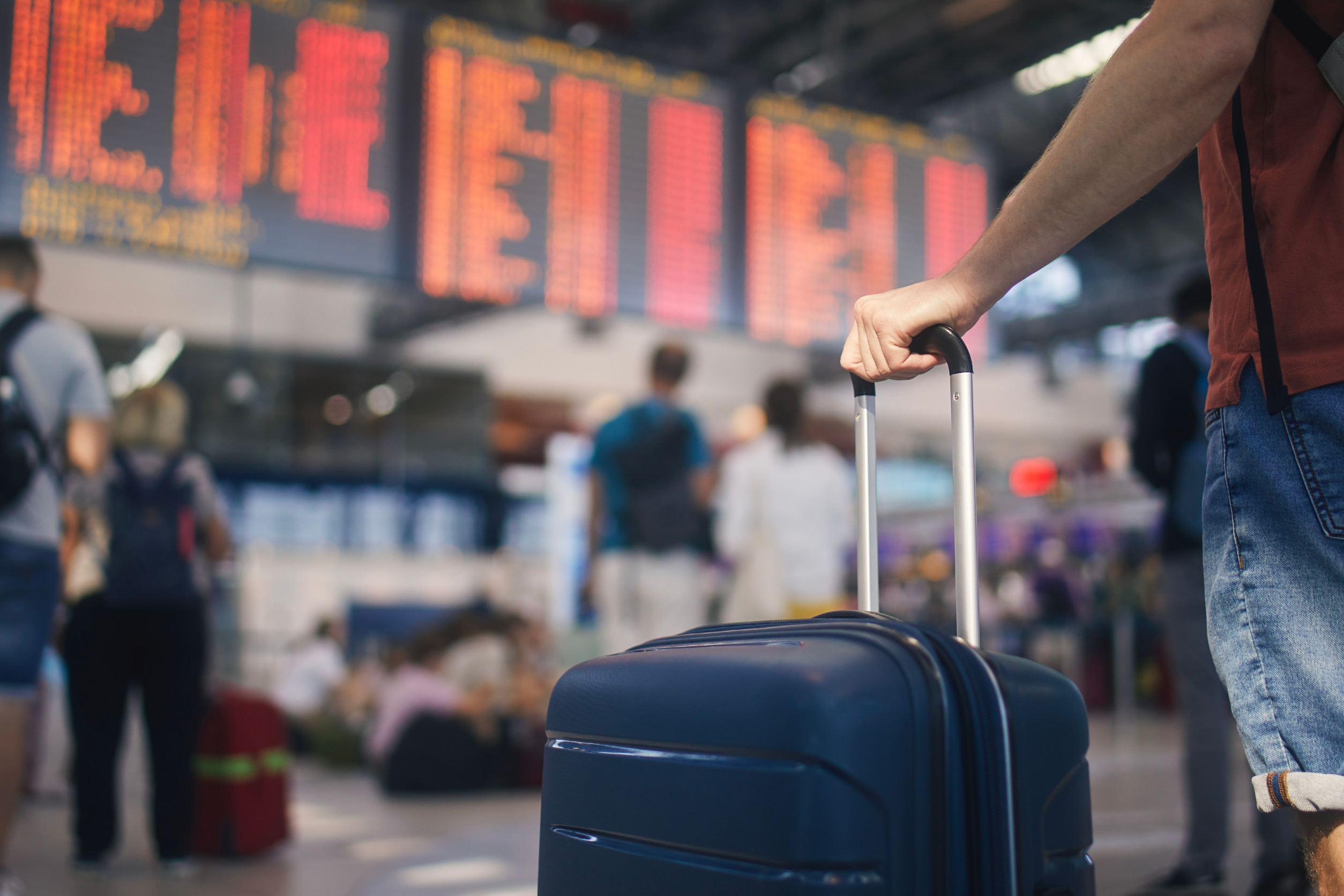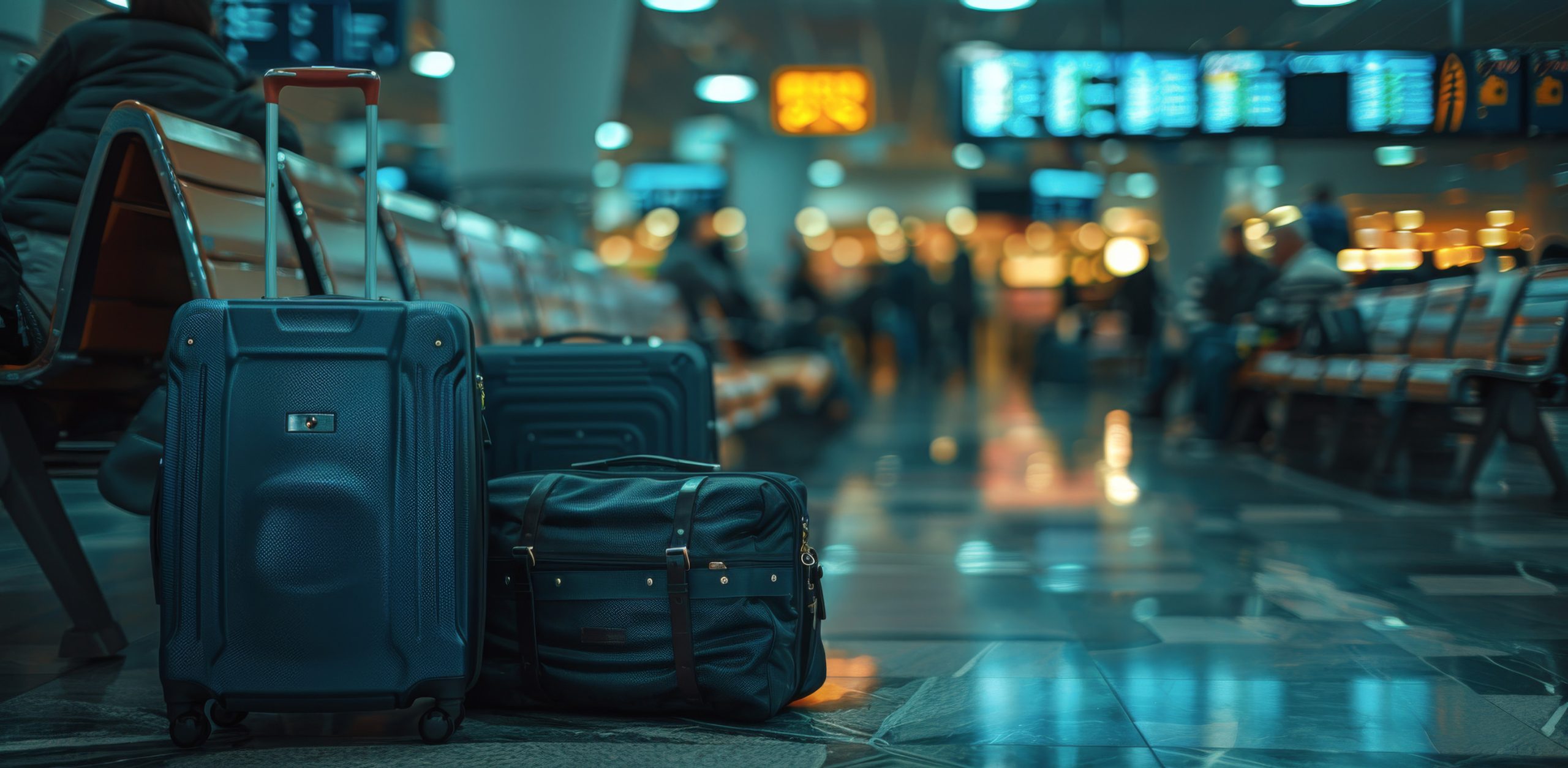
The convenience of slapping a luggage tag on a suitcase and heading to the airport is something most travelers don’t think twice about. But that small tag dangling from a handle could be a neon sign for criminals looking to target empty homes. In a digital age where personal data is easily exploited, a visible luggage tag can give burglars everything they need.
Traveling might mean relaxation, but an unchecked detail like this can turn it into an opportunity for crime. Here’s why something so routine could be riskier than most people realize.
Luggage Tags Make Your Home Address Public
When travelers place their full name and home address on a luggage tag, they’re broadcasting private information to anyone who glances at the bag. Airports, baggage handlers, and fellow travelers all pass close enough to read that tag. If the luggage is lost or delayed, someone else could take note of the information with little effort. With the right timing, a criminal could identify that the bag’s owner is hundreds or thousands of miles away. That creates an ideal window for a home break-in with almost zero resistance.
Airports Are Hunting Grounds for Opportunistic Thieves
Busy airports are filled with people, noise, and distractions—perfect conditions for a thief to operate unnoticed. Someone looking to gather information can scan baggage tags without raising suspicion. The mix of visible tags and mobile devices makes it easy to match a name to an online identity. Once a home address is found, cross-referencing social media can confirm travel dates and absence. From there, a burglar can plan their move with disturbing precision.
Social Media Confirms You’re Not Home
Even without digging deep, criminals can use social media to see vacation photos or travel announcements tied to the name on a luggage tag. A quick search often reveals real-time updates, making it obvious when someone is out of town. Combined with the home address from a tag, it’s a clear signal that the house is unoccupied. Public accounts or posts visible to “friends of friends” can unintentionally aid a criminal. It doesn’t take a genius to piece together the clues.
GPS-Enabled Tags Can Backfire
Some modern luggage tags come with GPS tracking, promoted as a way to help locate lost baggage. But if this signal is intercepted or hacked, it could lead directly to a traveler’s home. Tech-savvy criminals can potentially trace where the bag came from and determine how long it’s been gone. Instead of offering peace of mind, these tags might inadvertently help burglars plan a robbery with a precise timeline. What was meant to protect valuables might end up compromising home security.
Thieves Don’t Need Much to Strike
A name, an address, and a confirmed absence are all a burglar needs to move quickly. Most burglars look for easy targets with low risk of confrontation. A house where the owner is known to be away is as easy as it gets. They don’t need blueprints or a security code—just a window of time and minimal obstacles. That little luggage tag can provide the key details needed to greenlight a burglary.

Home Addresses Can Be Sold or Shared
Even if a criminal doesn’t act on the information personally, that data can still be valuable. Home addresses from luggage tags can be sold on the dark web or passed to others in organized theft rings. This creates a ripple effect where one careless act leads to ongoing vulnerability. Once in circulation, that information can be used again and again by different groups. A single airport exposure might haunt homeowners long after the trip ends.
Hotels and Rideshares Add to the Exposure
When checked luggage is handled at hotels or loaded into rideshare vehicles, the tag is again on display. Each handoff increases the chance that someone will notice the information printed on the tag. In some cases, even hotel staff or drivers have been caught exploiting access to traveler details. Criminals can quickly figure out where a traveler lives and that they are temporarily away from home. This isn’t about paranoia—it’s about preventing easy mistakes from creating real threats.
Smart Burglars Use the Internet to Their Advantage
Today’s thieves are often more strategic than impulsive. They leverage digital tools and open-source intelligence to plan their crimes efficiently. A name and address from a luggage tag is all it takes to pull up satellite views, floor plans, and neighborhood data online. They can analyze patterns and avoid detection using public information. A minor slip in physical security can fuel a high-tech criminal operation.
Travel Trends Have Shifted, But Threats Persist
Even though people are more aware of digital threats, physical security oversights remain common. Luggage tags haven’t evolved much, and the default is still to display sensitive information. While airlines recommend identification for lost bag claims, there are safer ways to do it. Hidden tags or ID cards placed inside luggage can provide the same benefits without public exposure. Security threats haven’t gone away—they’ve just adapted to new environments.
Criminals Exploit Predictable Behavior
Most people pack the same way, tag their bags the same way, and share travel moments online without hesitation. This consistency makes it easy for criminals to anticipate actions and plan accordingly. They know luggage tags are likely to contain useful details and that social media can confirm absences. Predictability breeds vulnerability when personal information is left exposed. Changing small habits can make a big difference in overall security.
Safer Alternatives Exist for Luggage Identification
There are practical steps travelers can take to avoid the risk without sacrificing luggage safety. Instead of displaying a full address, a phone number or email is often enough to recover a lost bag. Tags that flip open or conceal the information inside are another safer option. Airlines can also access booking information to locate travelers, reducing the need for external identification. Smart, subtle changes help prevent criminals from taking advantage of unnecessary exposure.
Think Before You Tag
Leaving a luggage tag with personal details might seem harmless, but it opens a door to potential burglary. Criminals are watching for easy signs that a home is vacant, and tags offer them more than enough to get started. A little privacy goes a long way when it comes to protecting what matters most. Don’t give thieves the roadmap they’re looking for.
If you have thoughts or experiences with this, share them—this conversation matters.
Read More
These Are The Top 5 Airlines To Fly With
7 Things You Need to Remember In An Airplane Emergency
The post Why Leaving a Luggage Tag on Your Checked Bag Could Invite a Home Burglary appeared first on Everybody Loves Your Money.







